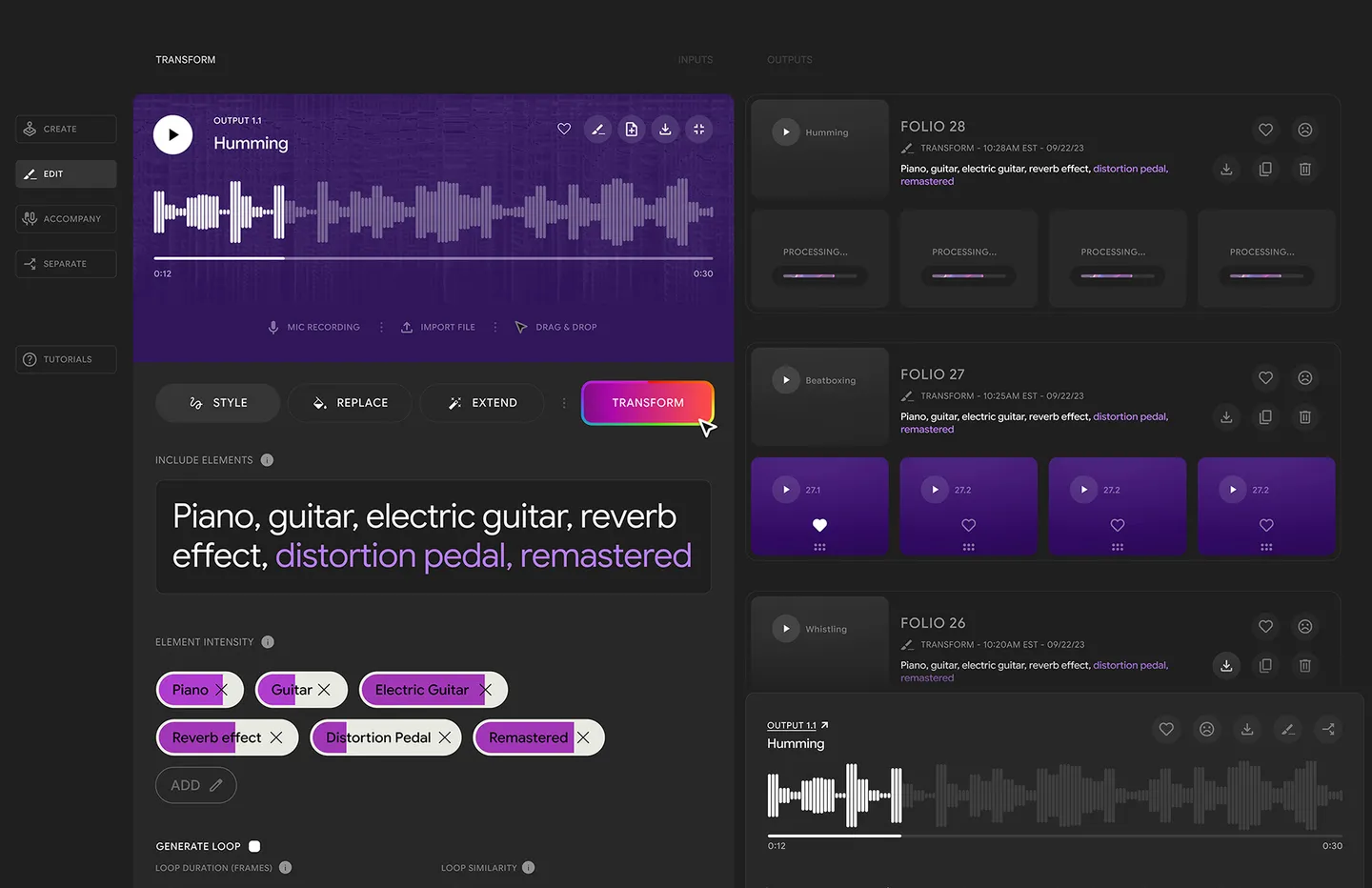YouTube is taking a significant leap in the realm of artificial intelligence and music generation. The platform is currently testing a series of cutting-edge AI features, including the Dream Track feature, which allows the creation of music tracks from simple text prompts or hummed tunes. These advancements mark a pivotal moment in the intersection of AI technology and music creation.
The Dream Track feature is particularly noteworthy. It’s designed to auto-generate short, 30-second music tracks that mimic the style of various well-known artists.
YouTube has secured the collaboration of nine artists for this feature, including Alec Benjamin, Charlie Puth, Charli XCX, Demi Lovato, John Legend, Papoose, Sia, T-Pain, and Troye Sivan. This initiative showcases how AI can be harnessed creatively while respecting copyright laws and artist relationships.
In demonstrations, YouTube showed how prompts like “A ballad about how opposites attract, upbeat acoustic” can produce a track in Charlie Puth’s style, or “A sunny morning in Florida, R&B” can result in a T-Pain-style song. The technology is capable of generating not only the music but also lyrics and an AI-generated voice resembling the artist’s style.
Beyond Dream Track: Expanding AI’s Role in Music
The Dream Track feature is just one part of YouTube’s broader exploration into AI-generated music. Other showcased tools include the ability to create music tracks from humming or beatboxing, transforming these into sophisticated compositions like a saxophone solo or an orchestral score. These tools will soon be available for testing by participants in YouTube’s Music AI incubator.
Google DeepMind’s Lyria: The Engine Behind the Music
Powering these innovative tools is Google’s DeepMind music generation model, Lyria. Lyria is engineered to embed a SynthID watermark in the tracks it generates.
This watermark, inaudible to the human ear, is designed to persist through modifications like noise addition, compression, or speed changes, ensuring the AI origin of the music can always be identified.
YouTube’s Approach to AI and Copyright Concerns
These developments arrive amid YouTube’s efforts to navigate the evolving landscape of AI-generated music and its implications for copyright and music industry relationships.
The platform’s recent deal with Universal Music Group to establish rules around AI-generated music on its platform highlights this commitment. Moreover, YouTube’s new content guidelines for AI-generated deepfakes aim to protect individuals and its music industry partners.
